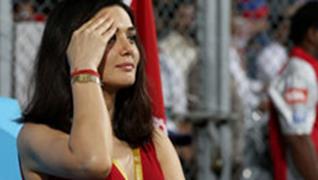The Central Board of Film Certification (CBFC) has decided to delete partially objectionable scenes rather than blur them, as many filmmakers are not implementing them even after their directives. A scene in The Xpose, featuring Sonali Raut, had a direct reference to the controversial film Satyam Shivam Sundaram (1978) which featured Zeenat Aman in a similar attire. However, the Censor Board passed the scene without cuts.
CBFC has also stated in its communication addressed to film bodies that it will now mute objectionable dialogues as opposed to beeping them out. On Monday, producers' associations shared this notification with their members.

In a sequence showcasing actress Zoya Afroz running on a beach, the Censor Board objected to the exposed cleavage before deciding to blur it.
Vikas Mohan, senior vice president of the Indian Film and Television Producers Council, says, `We have informed our members that due to non-compliance of suggestions by many filmmakers, the CBFC has stopped the practice of blurring objectionable visuals from now on.
The makers of 'Ek Villain' were told by the Censor Board to mute an offensive word and get their film passed with seven cuts
It means that if CBFC partially objects to a scene or part of a visual in a scene, it will no more be blurred but will be edited out completely.''

Under instructions from CBFC, several scenes in 'Jackpot', featuring Sachiin Joshi and Sunny Leone, were blurred
It maybe recalled here that the Censor Board had asked the makers of Dedh Ishqiya to blur out Arshad Warsi in a brothel scene, but it later found out that its instructions were not being implemented. A similar thing happened with Himesh Reshammiya's production, The Xpose as well.

CBFC had asked the makers of 'Dedh Ishqiya' to blur out a scene involging Arshad Warsi in a brothel but it was later found - by the Board - that the directive was not implemented
Is legal action the solution?
Producer-director Vipul Shah, who is one of the most vocal filmmakers in the film industry, says that legal action should be taken against those who don't follow the Censor Board's directives. He says, `If filmmakers violate directives of the board, take legal action against them. But I also see that the CBFC is getting regressive for reasons best known to them.''
Background music v/s Muting
Filmmaker David Dhawan, who has never faced problems with the CBFC, feels that every time someone new takes charge, a fresh set of rules comes into play. `Blurring makes no difference and deletion should not disturb the film. Also, I would suggest that instead of muting the dialogues, filmmaker should be allowed to replace them with background music.`
Follow the rules
Vikram Bhatt's film, Hate Story 2, faced problems with the CBFC over a song, but he agreed to make changes. Bhatt says, `Filmmakers should follow the Censor Board's diktats once they have agreed to the cuts. You can approach certain forums if you don't want to accept their cuts, but if you say yes, you can not cheat.`
Wanted: Clear guidelines
Anurag Kashyap says that the CBFC should have clear guidelines about blurring out things as opposed to cutting the whole thing out. `That is but a random rule; so if it's a portion in the middle of a conversation, you can not cut it. Blurring is what they do worldwide,` he says.
Striking a balance
Anubhav Sinha's films have faced hurdles when shown to the CBFC. He says, `The degree of exposure, that people who watch films under 'U' or 'U/A' certification have, has changed dramatically. We need to find a reasonable balance between what is allowed and where the society has reached today.''
Freedom of choice
Milan Luthria deleted and beeped out many scenes in the televised version of The Dirty Picture. He feels that the Censor Board and filmmakers should decide together about the audiences' cultural maturity. `Films can be made accordingly. We are a young, aware country. Can the viewer not choose what they want to see?` he says.




















